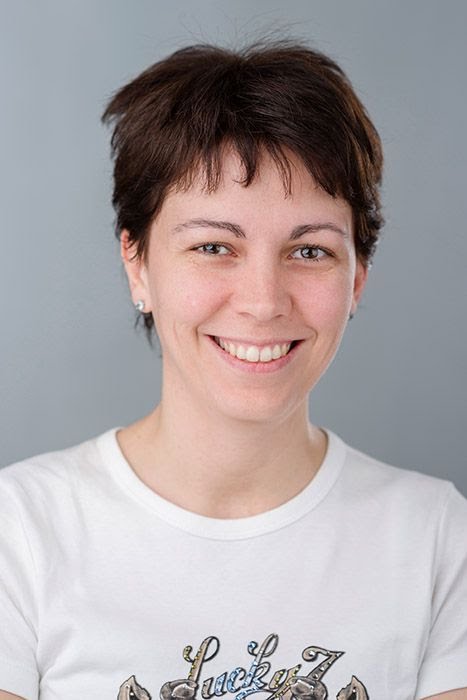Training and Research
PhD Programme Courses/classes - 2017/2018
Lezioni Dottorandi
Credits: 10
Language: Italian
Teacher: Laura Magazzini, Francesco De Sinopoli, Claudio Zoli, Angelo Zago, Roberto Ricciuti, Federico Perali, Barbara Gaudenzi, Roberto Renò, Mauro Mussini, Maria Vittoria Levati, Alessandro Lai, Martina Menon, Luca Zarri, Alessandro Bucciol, Valeria Franceschi, Luigi Grossi, Alessandro Zardini, Luca Taschini, Alberto Peretti, Marco Minozzo, Catia Scricciolo, Francesca Rossi, Riccardo Stacchezzini, Giam Pietro Cipriani, Marcella Veronesi, Diego Begalli, Letizia Pellegrini, Cecilia Rossignoli
Development Economics
Credits: 5
Language: Italian
Teacher: Federico Perali
Game Theory
Credits: 7,5
Language: Italian
Teacher: Francesco De Sinopoli
Probability
Credits: 7,5
Language: Italian
Teacher: Marco Minozzo
Statistica
Credits: 7,5
Language: Italian
Teacher: Catia Scricciolo
Probability (2017/2018)
Teacher
Referent
Credits
7.5
Language
Italian
Class attendance
Free Choice
Learning outcomes
Availability
The course is intended for 1st year students on PhD in Economics and Management.
Pre-requisites
Introduction to mathematics, elementary statistical theory and elementary set theory. Basic knowledge of probability theory, as in: P. Newbold, W. Carlson, B. Thorne (2012), Statistics for Business and Economics, Pearson Higher Education, Chapters 3-5 (previous editions would be fine as well). Attendance at more advanced courses such as real analysis, probability, distribution theory and statistical inference would be desirable.
Objectives of the course
The purposes of this course are: (i) to explain, at an intermediate level, the basis of probability theory and some of its more relevant theoretical features; (ii) to explore those aspects of the theory most used in advanced analytical models in economics and finance. The topics will be illustrated and explained through many examples.
Program
Course content
1. Algebras and sigma-algebras, axiomatic definition of probability, probability spaces, properties of probability, conditional probability, Bayes theorem, stochastic independence for events.
2. Random variables, measurability, cumulative distribution functions and density functions.
3. Transformations of random variables, probability integral transform.
4. Lebesgue integral, expectation and variance of random variables, Markov inequality, Tchebycheff inequality, Jensen inequality, moments and moment generating function.
5. Multidimensional random variables, joint distributions, marginal and conditional distributions, stochastic independence for random variables, covariance and correlation, Cauchy-Schwartz inequality.
6. Bivariate normal distribution, moments, marginal and conditional densities.
7. Transformations of multidimensional random variables.
8. Convergence of sequences of random variables, weak law of large numbers and central limit theorem.
Textbook
S. Ross (2010). A First Course in Probability, 8th Edition. Pearson Prentice Hall.
Further readings
G. Casella, R. L. Berger (2002). Statistical Inference, Second edition. Duxbury Thompson Learning.
R. Durrett (2009). Elementary Probability for Applications. Cambridge University Press.
M. J. Evans, J. S. Rosenthal (2003). Probability and Statistics - The Science of Uncertainty. W. H. Freeman and Co.
G. Grimmett, D. Stirzaker (2001). Probability and Random Processes. Oxford University Press.
A. M. Mood, F. A. Graybill, D. C. Boes (1974). Introduction to the Theory of Statistics. McGraw-Hill.
P. Newbold, W. Carlson, B. Thorne (2012). Statistics for Business and Economics. Pearson Higher Education.
D. Stirzaker (2003). Elementary Probability. Cambridge University Press.
L. Wasserman (2004). All of Statistics. Springer.
Advanced readings
R. B. Ash, C. A. Doléans-Dade (2000). Probability and Measure Theory. Harcourt/Academic Press.
M. J. Schervish (1995). Theory of Statistics. Springer.
| Author | Title | Publishing house | Year | ISBN | Notes |
|---|---|---|---|---|---|
| S. Ross | A First Course in Probability (Edizione 8) | Pearson Prentice Hall | 2010 | Textbook | |
| L. Wasserman | All of Statistics | Springer | 2004 | ||
| D. Stirzaker | Elementary Probability | Cambridge University Press | 2003 | ||
| R. Durrett | Elementary Probability for Applications | Cambridge University Press | 2009 | ||
| A. M. Mood, F. A. Graybill, D. C. Boes | Introduction to the Theory of Statistics | McGraw-Hill | 1974 | ||
| R. B. Ash, C. A. Doléans-Dade | Probability and Measure Theory | Harcourt/Academic Press | 2000 | ||
| G. R. Grimmett, D. R. Stirzaker | Probability and Random Processes (Edizione 3) | Oxford University Press | 2001 | 0198572220 | |
| M. J. Evans, J. S. Rosenthal | Probability and Statistics - The Science of Uncertainty | W. H. Freeman and Co. | 2003 | ||
| G. Casella, R. L. Berger | Statistical Inference (Edizione 2) | Duxbury Thompson Learning | 2002 | ||
| P. Newbold, W. Carlson, B. Thorne | Statistics for Business and Economics | Pearson Higher Education | 2012 | ||
| M. J. Schervish | Theory of Statistics | Springer | 1995 |
Examination Methods
Assessment
A two-hour written paper at the end of the course.
PhD school courses/classes - 2017/2018
PhD School training offer to be defined
Faculty
 tamara.fioroni@univr.it
tamara.fioroni@univr.it

Magazzini Laura
 laura.magazzini@univr.it
laura.magazzini@univr.it
 045 8028525
045 8028525
 cecilia.mancini@univr.it
cecilia.mancini@univr.it
 martina.menon@univr.it
martina.menon@univr.it
Mussini Mauro
 mauro.mussini@univr.it
mauro.mussini@univr.it

Taschini Luca
 luca.taschini@univr.it
luca.taschini@univr.it
 045 802 8736
045 802 8736
 marcella.veronesi@univr.it
marcella.veronesi@univr.it
PhD students
 amiem.jobe@univr.it
amiem.jobe@univr.it
 enockdesmond.opoku@univr.it
enockdesmond.opoku@univr.it
 andrea.xamo@univr.it
andrea.xamo@univr.it
Loading...






































